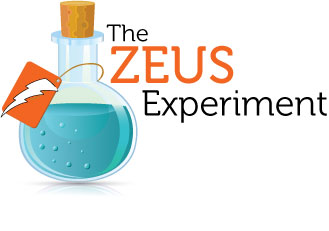A guest post by Zeus Yiamouyiannis.
Simply turning up the burner won’t do it.
Heating up your business means learning how to cook. In fact, developing a successful online business is a lot like preparing a splendid eight-course dinner. To use Tea’s metaphors, if you don’t have the proper dishes, and you don’t prepare and finish cooking those dishes at the right time and in the right order, your dinner is going to get cold and will probably taste more than a little “off.”
A good business requires an owner/chef who’s skilled at anticipating what needs to be done and then planning and executing really well, often without much guidance.
Meanwhile, info product hypers and sellers continue to throw all kinds of ingredients at you, saying, “This is the essential piece for your online success.” Well, you and I both know that ingredients alone don’t make a meal. They must be tastefully and compellingly assembled. With the notable exception of what Tea’s doing, there is precious little help with the broad-ranging “culinary” craft of running a successful online business. You have to master and link together a lot more than I ever dreamed.
Would it Really Happen This Way?
 Imagine this scenario: A cooking school shows you shelves of mouth-watering ingredients and then says, “Go at it. These will make an amazing meal.”
Imagine this scenario: A cooking school shows you shelves of mouth-watering ingredients and then says, “Go at it. These will make an amazing meal.”
“But,” you say, I don’t yet know to cook.
”It’s easy,” they say, “just create your own dish. There is the mixing bowl. There is the oven. All it takes is passion and gumption and my special, one-time-only, limited edition formula, and you’re sure to please.”
So, you emulate and go with trial and error, trying your best to mix your passion, your talent, and different bits and pieces of advice, with a few dishes that turn out edible but not particularly dazzling.
Not bad for a first attempt (maybe), but no where near where it needs to be if people will actually want to eat it. Continue on this way and you may succeed after a couple of decades — or, if you’re very lucky, strike upon some accidental recipe that takes off.
The former isn’t very appetizing and the latter not very realistic. We can speed things up if we pool our efforts, get real, and learn from each other’s struggles.
Bottom line: you and I want to do what we love, nourish audience needs (produce a “meal” that people will savor), and generate an income.
Create winning recipes by learning from our collective mistakes
I’ve already learned a lot from comments on previous posts in The Zeus Experiment (TZE) series. And I’m pleading with you, for the good of the community, share your own failures, struggles, frustrations, experiments, and, yes, triumphs.
What I’ve learned is this: Right now, many people out there, maybe a majority, either don’t have a satisfactory working website or don’t have a vital component (product, service, offer, subscriber base) in good enough shape to succeed at their online business.
Loran commented in the first TZE blog that she tried to sell a physical product, then PDFs, and now is considering pre-selling.
Sue commented in the second TZE blog that it took her months to get Google Apps to acknowledge her domain ownership.
And it’s taken Laurie a couple of months and still counting to get her website up and running (third TZE blog).
If you’re struggling, you aren’t alone
Pooled learning helps accelerate your progress, helps you feel less inadequate and isolated, and can give you some great tips and resources to succeed. There is a better, faster way to do this. It’s not a formula. It’s about learning the fundamental parts of a business and putting them together in a way that works for you.
Planning the courses: The Checklist
If you’re starting from ground zero (like me), preparing any one of these “dishes” (parts of your online business) could be difficult. Preparing them all by yourself — and getting them to work together — is even harder. But it can be done. I have a fondness for saying now, “When trouble rears its head, it will be done.”
I have little technical website knowledge. I’m not used to selling myself, much less knowing the inside-and-out of running a business. My consulting clients in the past have come from word of mouth, and I simply gave them an invoice.  I’m passionate and articulate in speech, an excellent writer, and good at what I do (helping someone learn to transform their learning ability in an effective, accelerated way).
I’m passionate and articulate in speech, an excellent writer, and good at what I do (helping someone learn to transform their learning ability in an effective, accelerated way).
Yet, I’ve only half-thought about how to lay things out.
If I’m going to plan an eight-course meal, it might help to plan out my menu. Okay, now’s a good time for the checklist I promised you last week. These are in broad terms the things I’ve noticed and learned should be in a plan. I’ve included my own specifics as examples for these, knowing that we can get to details in later posts:
- Know thyself: Using Tea’s “Secret Sauce” course or self-inventory or some other method, it helps to create a foundation for business in who you are, what you offer, and what your “knack” is for doing things better than “what’s out there.” This connects to your passion(s) and talent(s) and should be clearly drawn up and articulated.
- Identify others’ needs in terms of pain and desire: For my business there is pain in a whole segment of smart people (learning disabled, creative, non-conventional, etc.) that are being left behind by current teaching methods. Their desire (and the desire of those who “succeed” but are bored or uninspired) is to fully realize their learning power so they can engage new possibilities and solve real problems.
- Summarize your resources: What kind of time can you spend per week? How much money do you have to invest? How deep is your expertise? What are your connections? I can spend at least 20 hours a week. I can invest a couple thousand dollars. My expertise is quite deep and well-developed with successes and testimonials to back it up. I have a large network of professional and friend connections I can tap to get my email subscriber list off to a good start.
- Learn the technology (to a certain point): I’m beginning to get comfortable with my WordPress dashboard and the AWeber email subscriber interface, but I’ve run up against my limits in trying to make my opt-in box work by skillfully inserting html code in all the right places. Pareto Principle: Try to do the easier 80% and hire someone or get a mentor for the more difficult 20%.
- Organize your website design: Find a website that you admire and that reflects your tastes. Emulate it, but in a personalized way. Decide on the most important basic elements to start (and then expand). For me, I found Chris Brogan’s site to capture much of what I want to do with my business, albeit in a different content area. Basic elements I chose: Website name (CitizenZeus), WordPress installed, StudioPress Generate Theme/Genesis framework, Generate opt-in box plug-in, AWeber email subscriber service, two menus (one about me and what I provide and one about the areas I cover), a written blog, YouTube video channel for v-blogging, a PayPal button for donation or payment, Ask Zeus contact form for thorny learning questions, products and services tab. I’ve also got good feedback I can use to put in a “successes” tab to prove I can deliver.
- Connect to your people: Who might be interested in and be willing to spread and help develop what I’m offering? My list includes mentors, friends, professional community, local networks, need communities (home-school, charter school, college prep learning disabled, cultural creative’s, social activists, innovators). How might I create a continual conversation with them? I will send Email list invitations and solicit questions for an “Ask Zeus” column.
- Develop the marketing: I haven’t really developed a straight-up product freebie to bring people in (though I’m honing in on an e-book to use in the future). In lieu of that, I’m asking people to pose their learning challenges so I can answer these challenges in regular video posts and “Ask Zeus” responses on the blog. I’m stressing the importance of “joining a growing community of global citizens” who are transforming their learning. My job will be to facilitate this community and show through present engagement and past accomplishment I can deliver for individuals and organizations.
- Offer products and content that reinforce each other and build your brand: For me, that means a “Learn to Transform” blog, e-book (Transform Your Economy and Mindflexing), consulting services, information products and services to save people time, aggravation, and money. It’s hard for people to “know what you mean” until you provide examples with tangible advice, products, services, skills, tips, teaching, etc.
The Reality Check
 Here’s what we’re all up against: Interest in starting online businesses is exploding along with self- publishing, yet the growth of revenue for the online industry as a whole is expected to sharply contract over the next five years. (See infographic)
Here’s what we’re all up against: Interest in starting online businesses is exploding along with self- publishing, yet the growth of revenue for the online industry as a whole is expected to sharply contract over the next five years. (See infographic)
It was a helluva lot easier on several counts if you started as many of the web celebs did in 2004-2007. You got a head start learning the technology and adding to your knowledge. You were better able to develop mentoring and relationships with heavy hitters. You had less competition in branding and drawing in an audience. You had more time to make mistakes and develop the craft.
As with real estate, anyone can make a fast buck while the bubble inflates. Now that there’s growing demand and diminishing opportunity, a lot of people and businesses will wash out.
Here’s the secret though: The fundamentals of business still work no matter what the competition or climate. Master them, organize them well, and provide real value, and you can succeed even in tough conditions. In my own very humble way I hope I am able to help with this.
***
A Word from Tea
Zeus did an excellent job this week of summing up what you need to begin this crazy journey we call entrepreneurship. The only thing I would add/emphasize is that you slow down on the info consumption (especially from folks promising you easy, overnight success) and spend more time taking massive action.
Yes, it can be hard to know when you’ve “learned” enough to begin (which is why it’s great to work with a mentor), but the flip side is that you stay stuck in learning mode (“If I watch this one last video, I know I’ll be ready…”).
It makes my heart hurt to see those dreams stalled out for lack of confidence and/or direction. You don’t have to be perfect. In fact, you’ll never be perfect. None of us will. The best we can do is to make daily progress, stay on purpose, try to make the best decisions possible, and — when all else fails — enjoy the ride.
What about you? Where are you in this whole process? Just starting? Getting your sea legs? Or starting over? Share your stories with us in a comment below.








I concur with Tea. Excellent post again, Zeus. Where am I at? 1. Check. If you are reading this and haven’t gone through Tea’s Secret Sauce class, you are missing out on a great resource to help you think through what the heck it is you are doing. Well put together and a great high-level place to start the process of creating your own business or re-thinking/revving up your current one. Good on your own, better with a class for the group feedback and interaction.2. Check. Continuing to hone in on this part, but I think I’ve got this down. Created a formal painpoints/solutions/benefits doc of my own to keep me focused on what I am trying to provide. I still have a tendency to go off on a tangent outside my core offering because it just came up or it sounds like fun. ;-( But I am getting better.3. Check. But, I haven’t done this formally and I think I will write something up on this to refer to occasionally to remind myself of my larger network/resources and whom I know that can help me with something. I tend to forget that I don’t have to know everything or do everything myself. 4. Hmm. Did I mention that I like to do everything myself? I am looking for a graphic designer to outsource stuff to now, at least. I spend a ridiculous amount of time in this area where I am not very skilled. This one needs more work.5. Where I am (still) at. But making progress. I have had just enough word of mouth business that I rarely have time to spend on getting this done finally. And when there is a lull, I spend the time finding one more “job” or chasing more “info.”Because I am so guilty of what Tea highlighted. I am still (5 months into this process) spending too much time on info consumption, thinking that I am going to find somebody or something out there with the magic formula to make me wildly successful. I need more discipline in this area…I’m really enjoying this whole Zeus experiment thing and feeling like I am playing along with you at home. Keep up the good work. ;-)-Laurie
Tea, Zeus, WOW, now that’s a post. So rich and robust and plain ol’ honest. So I’ll be open in return. The question posed is where are we in this process. I’m lingering between 7 and 8. My site http://myspalmer.com is new but growing. It’s my personal brand and all that jazz but I have been a copywriter for 7+ years now. So I’m trying to make the transition from just proving copywriting services, to teaching entrepreneurs and solo-preneurs how to find their Voices and brand themselves through their content.I’d say growing a list is the biggest obstacle. The marketing planning and product development aren’t an issue I just feel like the list should come first. Eager to be apart of your “experiment” to see where it takes us all. Enjoy the weekend! and thanks again for this post.
Wow, Zeus, this is a very cool process you and Tea have begun!I’m working on a new website, doing some hair-tearing and cramming info into my brain from too many sources … here lies the very first place I’ve found a readable and doable Step-by-Step guide to gearing up.Thanks for sharing so much of the nuts and bolts that go into a “simple” venture. Can’t tell you how helpful your experience has already been to me; and I’m just getting started.I’ll stay tuned. Best of luck to both of you as you continue the “experiment.”~Jim
Whew, got a post about a couple of comments that need to be approved. I’ll figure out why this is being sent to me and then I’ll respond, promise!